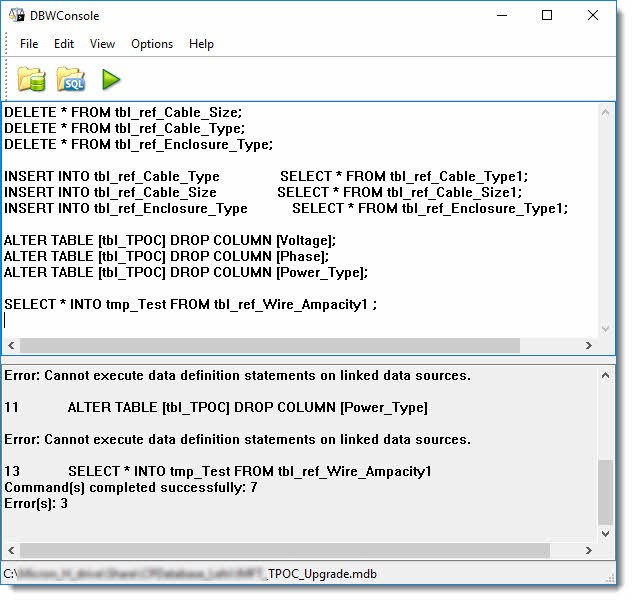I have a text file with a few SQL statements in it that I want to run on an Access database. I thought that should be possible with Access' Query Editor. So, I go into this editor and paste the statements:
insert into aFewYears (yr) values ('2000')
insert into aFewYears (yr) values ('2001')
insert into aFewYears (yr) values ('2002')
insert into aFewYears (yr) values ('2003')
Trying to run them (by hitting the red exclamation mark) I receive a
Missing semicolon (;) at end of SQL statement.
This could be taken as an indication that the editor would allow to execute multiple statements. So, I change the statements and append such a semicolon at the end:
insert into aFewYears (yr) values ('2000');
insert into aFewYears (yr) values ('2001');
insert into aFewYears (yr) values ('2002');
insert into aFewYears (yr) values ('2003');
Then I get a
Characters found after end of SQL statement.
which probably could be taken as an indication that it is not possible
to execute multiple statements.
Ok, so the question: is it possible to execute multiple statements in the query editor, or is it possible to somehow batch-execute sql statements in a file in/on/against Access.
Thanks / Rene
edit The insert statements were used as an example and I realize that they are less than perfect, because they all go to the same table and such a thing can obviously somehow be solved by using one statement that has a union or something. In my actual case that I am trying to solve, the file contains not only insert statements but also create table statements and insert statements with different underlying tables. So I hoped (and still hope) that there is something like my beloved SQL*Plus for Oracle that can execute a file with all kinds of SQL Statements.

